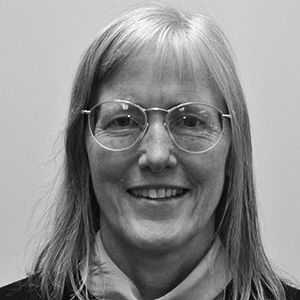Citation

Dr. Claire L. Parkinson is recognized for her significant, innovative, and sustained contributions to the understanding of the climatic effects of sea ice and leadership in satellite missions. Her research was among the first to show Arctic sea ice in late summer is on a downward trend—now one of the most striking signs of climate change with a loss of about 50% over the past 4 decades. She also pioneered the development of a computer model of sea ice for use in global climate models. In particular, she developed the first sea ice model for the full Arctic and Antarctic that incorporated both sea ice dynamics and thermodynamics.
Dr. Parkinson has spent her career at NASA Goddard Space Flight Center, eventually reaching the esteemed title of senior fellow. She has been a member of the team that produces and interprets sea ice satellite products. She helped lead the way in connecting Arctic sea ice decline to greenhouse warming and documenting Antarctic sea ice variability and trends. Dr. Parkinson is the project scientist for the Aqua satellite mission, which launched in May 2002 and continues to transmit data on many atmospheric, ocean, land, and ice variables. Aqua data have been used in thousands of research publications by scientists worldwide and in numerous practical applications, including weather forecasting and forest fire detection.
Dr. Parkinson has authored, coauthored, or coedited 15 books. Among them are textbooks on examining Earth with satellite imagery and on climate modeling. She wrote about her concerns regarding climate engineering in Coming Climate Crisis? Consider the Past, Beware the Big Fix and about the history of western science in Breakthroughs: A Chronology of Great Achievements in Science and Mathematics. She has also led projects to support women in science and encourage children to explore the wonders of science.
She is an elected member of the U.S. National Academy of Engineering, the National Academy of Sciences, and the American Philosophical Society. She is a fellow of the American Academy of Arts and Sciences, the American Association for the Advancement of Science, the American Meteorological Society, AGU, and Phi Beta Kappa. She has received numerous prestigious awards, including the NASA Exceptional Achievement Medal for her dedication in advancing NASA’s Earth science missions and the Remote Sensing Prize by the American Meteorological Society.
—Ping Yang, Texas A&M University, College Station; and Cecilia M. Bitz, Department of Atmospheric Sciences, University of Washington, Seattle
Response
It is a huge honor for me to receive a major AGU medal, made even more memorable by its being named after the revered Roger Revelle. My heartfelt thanks go to AGU, the awards committee, and, most importantly, my nominators, Ping Yang and Cecilia Bitz, for going to the considerable effort to construct and submit a nomination. Thanks also to Richard Alley, Susan Solomon, Lonnie Thompson, and Warren Washington, who wonderfully wrote supporting letters. Much of my work has been collaborative, and I acknowledge and greatly appreciate my many collaborators, most prominent among them being, early on, my scientific colleagues Warren Washington, Jay Zwally, Joey Comiso, and Don Cavalieri and, in recent years, my programmer, Nick DiGirolamo.
My deepest thanks go to my employer, NASA Goddard Space Flight Center. For over 42 years, NASA has given me the opportunity to use satellite data, starting when these data and the computers to handle them were still quite new, and to engage in scientific research on polar sea ice and climate change, starting when very few people had even heard of polar sea ice and continuing to the present, when sea ice is widely recognized as a crucial component of Earth’s climate system. Just as importantly, NASA has given me the opportunity to serve the world through the role of project scientist for an Earth-observing satellite collecting data being used by thousands of scientists and in numerous practical applications, along with an abundance of opportunities to relay to others the excitement and value of science and attempt to bring balance to the polarized discussion of climate change. It has been a tremendous privilege for me to work at NASA and to be able to make these contributions.
When I first graduated from college, I suffered repeated rejections upon applying for jobs. Through that experience, I painfully learned what it’s like to desperately want to make a contribution but not be given a chance. By later obtaining a job at NASA, I was given a chance, at a time when very few females had comparable opportunities. Even though the job is often laden with frustrations, still, every day I feel grateful to NASA for giving me that chance and to my parents, who, while not scientifically inclined, were supportive of me at every stage. My greatest wish is for a future when everyone is given a fair chance to succeed.
—Claire L. Parkinson, NASA Goddard Space Flight Center, Greenbelt, Md.
Citation:
(2021), Claire L. Parkinson receives the 2020 Roger Revelle Medal, Eos, 102, https://doi.org/10.1029/2021EO158493. Published on 21 May 2021.
Text © 2021. AGU. CC BY-NC-ND 3.0
Except where otherwise noted, images are subject to copyright. Any reuse without express permission from the copyright owner is prohibited.
